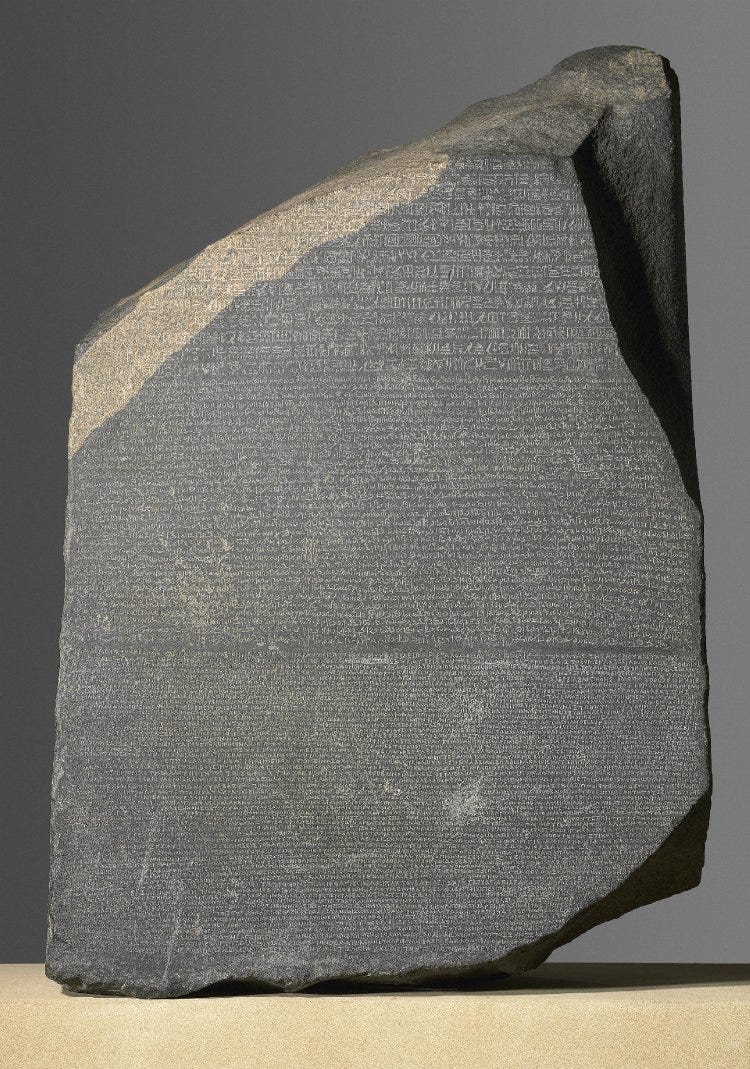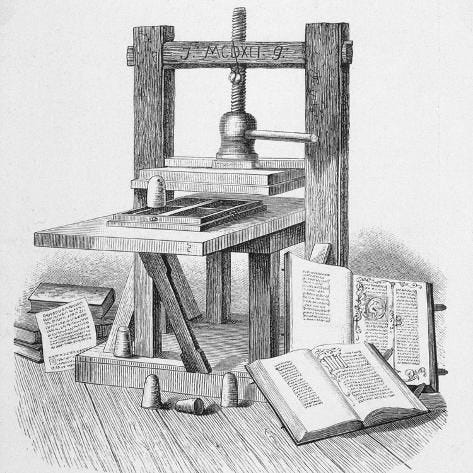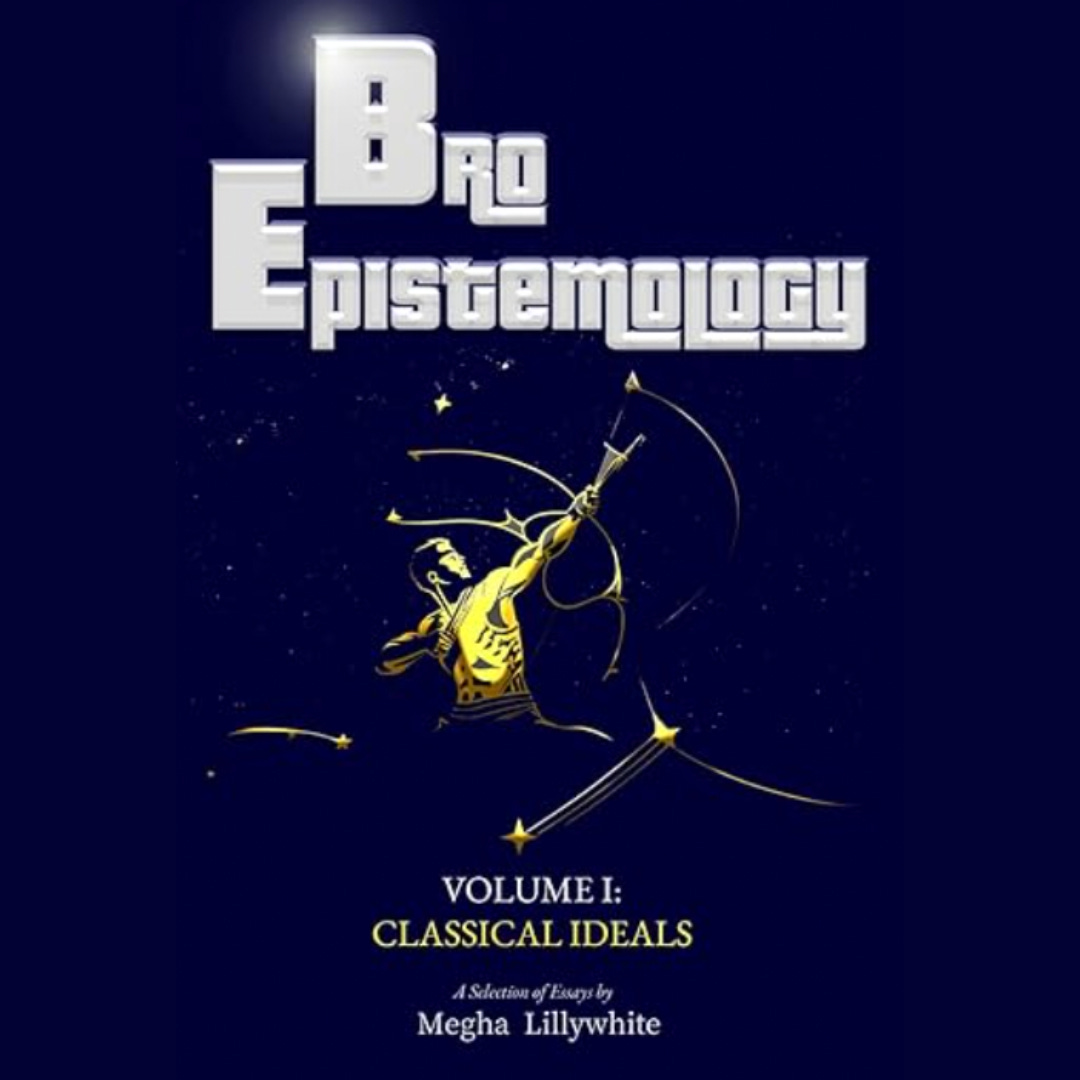Print this Post: the Anxiety of Remembering on a Disappearing Medium
The internet is now old enough that we who grew up with it, can remember posts, websites and ideas that once existed on the web, and are nowhere to be found today. Websites, entire libraries of work, if only digitally preserved, can be wiped out with the silent touch screen tap of a button, that doesn’t even give you the satisfaction of a “click”. If the Library of Alexandria had been burned down with such anti-climactic silence, would we even remember that it was there?
With the physical medium, at least the ashes remain, perhaps burnt remains and ruins remind us that something significant was destroyed. With the digital medium, there is no trace left behind to witness the violence. In fact, even things that do continue to exist on the internet, if they are old enough, will be forgotten, and disappear in that way. In order for something to continue to exist on the internet, it requires people to continually remember them and bring them to attention. If a video gets zero views, was it even posted? If an article is suppressed by every search engine and no one can find it, does it exist? Things on the internet has an attention-dependent ontology.
If you put something in a file on your computer, a picture of you and your best friend ten years ago who you don’t talk to anymore, but never remember that it’s there, a file within a file, will you ever think to look for it? Whereas if it is a physical picture, shoved between the pages of a book that languishes on your bookshelf, sooner or latter, you will wonder, “what is that book I keep seeing on my bookshelf?” You’ll open it up and out falls the picture, summoned to your attention without you having to recall it. The physical world exists without your attention in a way that the digital one does not, even though the physical world appear to be “more perishable”.
This applies very well to people too, as influencers understand the benediction and retribution of “the algorithm” for letting them be famous or banished as many a shadow-banned accounts understand. Even in that sentence, it is clear that “people” on the internet are merely accounts, not human beings, just as with books they are merely “writers” or even “characters”. But this is not a luddite diatribe against the internet and its basic functioning. This piece aims to take stock of the insurance policies we must take against a flawed, though miraculous, tool of publishing. In every way, the internet is the ultimate publishing company, and the grandchild of the invention of writing and the printing press.
Because Beasts Do Not Have A Sense of History
There are many ways that we can separate man from beast, but one of the most fundamental cognitive ways that we differ is our sense of history (and our ability to learn). Beasts exist in an eternal present; nothing is remembered from the previous generation and any information that is taught from mother to child, father to son, is merely a set of survival instincts that inhere more or less naturally. There is no pedagogical strategy to a lionness teaching her daughter to hunt, she is merely impelled by her instincts to model what her children are equally impelled to learn by observation. Place a baboon in the lioness’s care and she will not learn what the lion-cub can. Because learning for beasts is not conscious, it is unconscious.
Human beings have always sought to pass on information beyond one generation to the next. We drew cave paintings to represent what we saw in our daily lives, what we valued and what happened to us. We recited poetry and taught them in rhymes to our children that our great grandchildren would remember long after we had died. We built graves and tombs. We all yearn to remember and have since the beginning of time. Societies exist that do not remember still live like beasts, and are closer to them than to human beings. A sense of history can be correlated to the degree of humanity a society preserves within itself––and by extension informs the greatness of what it can achieve. This makes sense because a society that wipes the slate clean every two or three generations, has no hope of building anything. Cathedrals are build on stone, not sand that is washed down with the tide that comes in every evening.
Libraries Burn but VHS tapes become “incompatible”
I suppose physical media too can become “incompatible” with our own programming. Consider ancient Egyptian hieroglyphics that no one could read thousands of years later until the Rosetta Stone was discovered in 1799 and helped us to decipher this ancient language. Physical media, such as books, printed paper, and yes images and figures carved into or painted onto stone, have been proven to last millennia. We can still read the stories composed by Homer, and Ancient Egyptians alike because they were transcribed onto something physical.
Stone can erode, paper can be burned and the information disappears. The entire endeavour of archaeological preservation struggles against this inevitability of the strange mortality of physical media. Monks and illuminators painstakingly copied the Bible into hundreds and thousands of copies before Gutenberg permitted it to be printed automatically with a machine. The information gained power and traction as more and more people had access to it. Voices from the past were amplified from a whisper audible to only the well educated and wealthy, to being accessible to the common man. This had unfathomable impacts on society as the foundations on which we could build became stronger and more plentiful.
But there was an inflection point with the internet. All of these modes of “publishing” were but a shadow in comparison to digital media such as VHS tapes, floppy discs, DVDs, hard drives and then eventually cloud servers that hold on to information for us in such a way that if any individual device is destroyed, the information is still safe and can always be retrieved. Imagine if the Library of Alexandria was Digitized and backed up in a server somewhere else!
This is part of our pride, I believe, that lets us believe this is somehow a solution. Every few years, we find that our plugs become incompatible, software must be updated and things recorded on old devices do not last a decade let alone a generation. Through “planned obsolescence,” digital media have lost the ability to do what human information preservation was meant to do in the first place: preserve for the next generation. At this point your childhood memories were preserved as cave paintings rather than on a VHS you might have an easier time accessing them. All of the mums recording their childrens’ lives on their iphones understand that if they dont print these pictures out, one day, the iphone might have an “update” or the harddrive they painstakingly backed up the images on might “Randomly get corrupted” and all these memories are lost forever.
Printers and Liars
A note must be made here about printers. Isn’t it odd that every person you speak to has had issues with printers? It’s almost a personal odyssey of finding one that works perfecltly well, and once it does work, it cannot be moved or touched or the whole process will have to start again. Many a printers have likely faced physical abuse from frustrated people who couldn’t figure out how to use them in any kind of reliable way. Getting a physical menu in a restaurant is akin to asking them to give you the appetizers for free as disgruntled waiters scrunch up their noses and begrudgingly bring you copies of the menu that they definitely have.
Transforming information from the digital medium to the physical seems to be a unique and unncessary challenge for a civilization that can create a robot that mimics human conversation to eery accuracy.
It is not only personal printers that must be considered but also commercial printers. A few people seem to have a monopoly on the printing and distribution of physical media in the world, such that if any ordinary person wants to start their own publishing company, the costs are so prohibitive that it is ridiculous. Getting books in physical book stores seems to be the prerogative of a niche in-group that does not allow people it doesn’t like, and can stomp out competition with just a few phone calls. Newspapers can only afford to print mass amounts of copies if they are linked to legacy institutions. Printing for niche groups that pose any kind of threat to the status quo are always challenged primarily with the issue of taking their discussions from the ephemeral digital realm to the physical one, on people’s doorsteps every morning.
It’s as if it is implicitly understood somewhere on the upper echelons of power in society that only that which makes it to the physical medium will ever be remembered and disseminated. Only information in the physical medium will be remembered and passed down and play a role in shaping society in any kind of permanent way.
Things written down in physical media are remembered, clipped from newspapers, and pasted into scrapbooks. They are kept. They are remembered, even when the institution or the status quo wishes for us to forget or memory-hole it. And then it will gas light us that all of that never happened. “No, of course the government didn’t restrict you from seeing your loved ones in the hospital during covid. Of course no one was trapped in their country unable to travel if they didn’t get an experimental injection. Donald Trump was never shot. None of that happened. Don’t be such a conspiracy theorist. Here, read the history as published by MainstreamNews dot com as it has been updated this morning.”
Every record has been destroyed or falsified, every book rewritten, every picture has been repainted, every statue and street building has been renamed, every date has been altered. And the process is continuing day by day and minute by minute. History has stopped.
George Orwell, 1984
Physical Books
Intelligent and forward thinking people today still collect physical books. They print out articles of note. They have physical family picture albums. It is only the midwits who invest heavily in the digital world. The intelligent people remember that the digital world is a word of sand and though you can use it and benefit from it, you need your two feet firmly on rock in order to weather the storm. Only the midwits are caught up in the latest mirage and build their house on it.
Because if you have a physical library, no one can one day change it while you’re not looking, suddenly make it unavailable on your streaming service, or remove it from the internet. It won’t be “suddenly gone” unless you have been physically robbed. Your notes wont mysteriously disappear. You will have the luxury of remembering, and of therefore building on truth, while the rest of the world lulls itself in the morphia of the digital. Their fragile glass ipads blank when the battery runs out, their servers always “somewhere else,” and nothing but a black mirror in their own two hands.
--------
If you are a supporter of this blog and have enjoyed what I write, I have good news for you! I have taken my own advice and have put some of my essays in a physical format for you to keep, in a book called Bro Epistemology.
This is a collection of ten of my favourite essays on philosophy and how to think in the modern world, including many pay-walled essays. This is a great way to keep the ideas I publish on here for posterity, so that even if this blog somehow disappears one day (which it will), the ideas and their value will not.







One day you will be a digital Ozymandias too.
You missed out the last important sentence from the 1984 quote -
"Nothing exists except an endless present in which the Party is always right."
That is why our enemies are trying to erase Western history. They will fail of course, and their family lines will be forgotten.
Loved this piece Megha! The tangibility of words is one of the reasons I convert my longer posts into downloadable pdf files for readers. My husband Peco and I recently wrote an article that echoes the themes you raise here, A Guide to Booklegging: How (and why) collect, preserve, and read the printed word https://schooloftheunconformed.substack.com/p/a-guide-to-booklegging-how-and-why